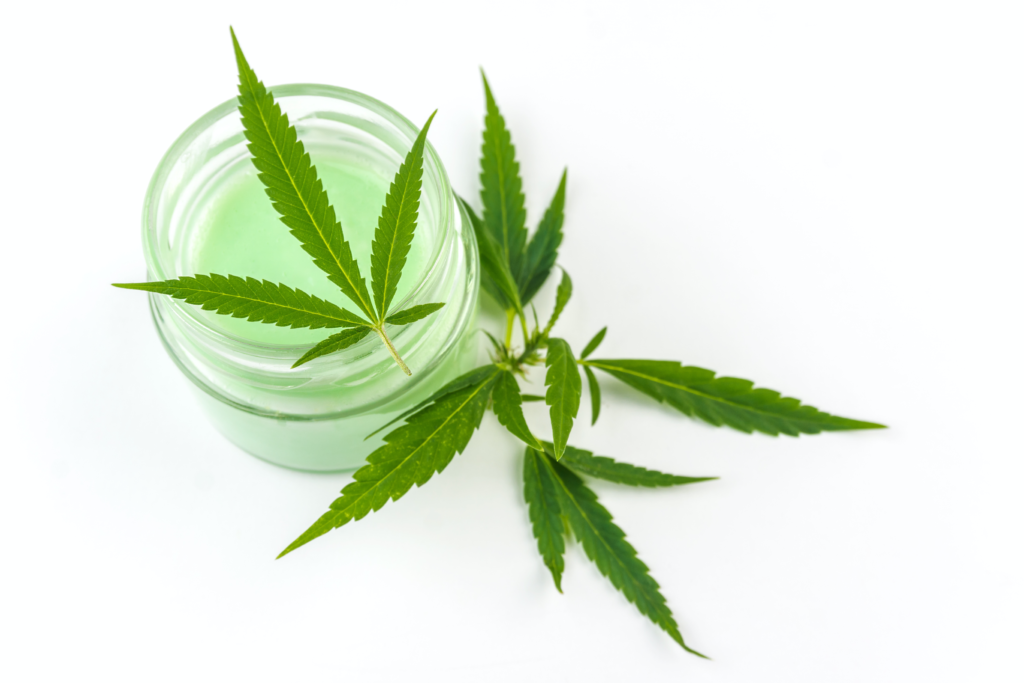
Michael Milane, MD, MBA, MPH, with John Jesitus
Cannabinoids (CBDs) have potential as anti-inflammatory products. Chief among topical CBD’s therapeutic advantages is safety. The size of the market for topical cannabinoids is potentially massive. An Allied Market Research report projects that by 2026, the global CBD skincare market will reach $3.48 billion.1
A pharmaceutical grade CBD product is now in clinical trials. In Greenway’s preclinical testing and ongoing Canno Cream trials involving more than 100 patients thus far, no serious adverse events (AEs) have been reported. Greenway’s observations in pediatric patients show similar safety. Based on the available data and our own data and experience, we’re finding that it’s very safe for use on the skin.
Mechanistically, topical CBD works on the CB2 receptor directly, causing reductions in IL-6 and TNF-α concentrations and inflammatory pathways in the skin, providing a potential alternative to steroids. Because topical CBD does not cause side effects, patients can use it longer than they can use steroids, or as a steroid-sparing agent for maintenance therapy. In a Greenway case report, a patient with recalcitrant rosacea who used Canno Cream monotherapy for 4 consecutive months achieved and maintained 90% clearance.2 Similarly, a patient with treatment-resistant eczema cleared in 5 days and subsequently flared when she ran out of the product, then quickly cleared again when she resumed using the CBD cream.
Because CBD affects mainly the peripheral nervous system, it produces no “high.” That’s more from tetrahydrocannabinol (THC), another molecule that is in the plant. Targeting the peripheral nervous system also allows greater therapeutic impact on the body, including pain, erythema, and itching.
Study of the endocannabinoid system (ECS) shows that humans already have the receptors in our bodies. And we produce a molecule that is similar to CBD or THC, which is called anandamide, discovered only recently (in 1992). The ECS uses these endogenous molecules to direct the body toward equilibrium.3 So if the body is inflamed, it helps reduce that.
To increase penetration, Greenway uses ultrasound technology to pulverize CBD into nano-sized (≤ 50 nm) particles. Cannabinoids are large molecules. Over-the-counter topical formulations currently being advertised typically include emulsions, oils, or substrates such as coconut oil. These substances clump CBD molecules together, allowing at best only 15%–20% of the active ingredient to penetrate the skin.
Conversely, Canno Cream’s smaller particles, medical-grade penetration enhancers, and concentration up to 300 mg per ounce allow up to 80% CBD absorption, resulting in significantly higher intended effect. To date, the product has shown the best results in atopic dermatitis. Although the COVID-19 pandemic has slowed clinical trial efforts, Greenway is very optimistic and plans to submit trial results to the FDA as soon as possible. In the future, multiple topical CBD products, even prescription products, which we also are working on, may be big in dermatology.
References
1. Allied Market Research. CBD skin care market by product type (oils, lotion & creams, masks & serums, bath & soaps, and others), source (hemp and marijuana), and distribution channel (departmental stores, e-commerce, hypermarkets/supermarkets, retail pharmacies, and others): global opportunity analysis and industry forecast, 2019–2026. https://www.alliedmarketresearch.com/cbd-skin-care-market. Published January 2020. Accessed February 9, 2021.
2. Milane M. Cannabinoids and dermatology. SUNY Downstate Autumn Dermatology Conference; November 4, 2019; New York. 3. Milane M. Potential for cannabinoid therapeutics in dermatology. Music City SCALE Symposium for Cosmetic Advances and Laser Education; July 24, 2020; Nashville.
Disclosures
Dr. Milane is president and CEO of Greenway Therapeutix.


